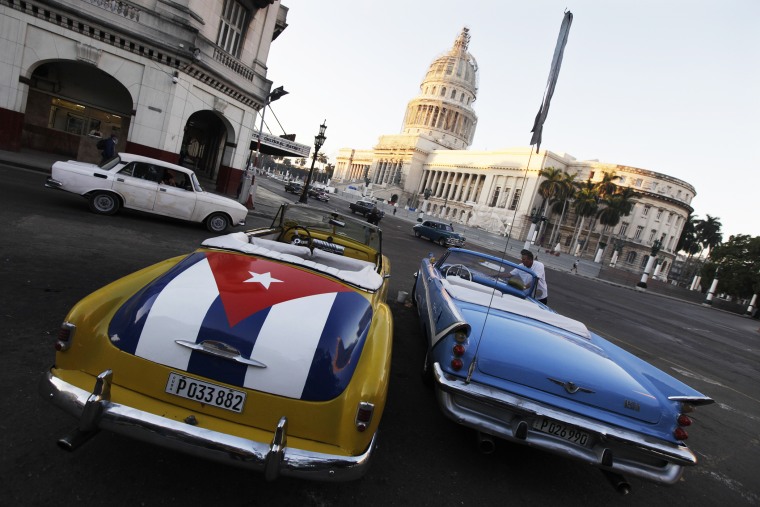Hours after President Barack Obama shared with the country on Wednesday his intent to improve relations with Cuba, dozens of Americans and foreigners of various nationalities gathered at the trendy Cuba Lounge at Victor's Cafe in New York City. They shared overwhelmingly positive thoughts about future domestic and economic ties between the two nations.
"Brilliant move; it's way overdue," said customer John Wilson, who called the president's move "gutsy" and one he believes will carry the United States forward.
Many lawmakers were quick to challenge the president's executive authority to lift restrictions between the United States and the island nation's communist government. But the customers visiting the cafe, located in Midtown Manhattan's Theater District, expressed enthusiasm and excitement at the possibility of re-establishing diplomatic and economic ties. They felt it was an overall positive move.
"We need to let go of some of this," Derrick Sanders, who was visiting from Chicago, told msnbc, as he stood in the bar waiting for the "Son de Cuba Band" to begin performing. "Plus, I love Cuban cigars, so what can I say?"
The president's move was "a step in the right direction," he added. "America has for too long held onto policies [of the] the 1950s, so we need to think toward the future. We need to think toward the world economy. We need to think about all of our partners around the world."
Potential changes, including the sale of Cuban cigars in shops around the United States, can't occur in the country until Congress approves the removal of the commercial, economic, and financial embargo. The government initially imposed the ban on Cuba during the Cold War in October 1960, and expanded it two years later.
RELATED: From 'I Love Lucy' to pop music, Cuba's influence on America runs deep
Founder Victor Del Corral, who moved the restaurant from West 71st Street to its current location on West 52nd Street in 1980, envisions the spot to represent what Cuban restaurants will become in the future. Vintage portraits of the Del Corral family and celebrities, completed by Cuban painters, surrounded guests as they prepared to dig into the Cuban-inspired tapas menu.
"It's about time that we started treating nations like they exist instead of pretending they don't," Wilson said as he sat at a high-top table in the lounge while waiting to be seated in one of the cafe's three dining rooms. “The Cuban people need to be brought into the real world, not left in this synthetic world they've been living in."
Just before Obama's announcement, the Cuban government released Alan Gross, an American contractor who had been held in captivity for five years. In return, the U.S. government released three Cuban spies who were being held in prison for more than 15 years.
Several people said they remain hopeful because improving the relationship most likely will increase the economy and travel between the two countries, as well as develop culture, introduce Cuba to the modern world, and possibly lead the country toward democracy. Michael Solomon, who was drinking a mojito made by the cafe's Cuban bartender, said the change will bring a tremendous boom to the American tourism industry.
"It has suffered," Solomon added, "as we've been watching a lot of European companies going in there."
